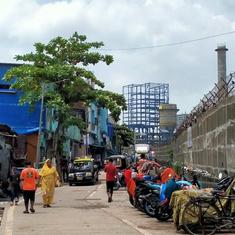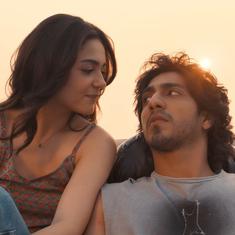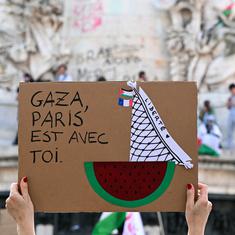In June 1948, Ashfaque Husain, a senior bureaucrat in India’s Ministry of Education, received an unexpected letter from Havana: he was being awarded a state honour by the Cuban government.
“I have the honour to inform you that the National Council of the Order of Merit ‘Carlos Manuel de Céspedes’ has, by a decree dated 18th April, been pleased to confer on you...,” Cuban Under Secretary of State Augel Solanos wrote in the letter.
The Cuban official asked Husain to accept the honour by filling out a printed form sent with the letter. “In congratulating you on the well earned distinction conferred on you, I avail myself of the opportunity to offer you the assurances of my high consideration,” he wrote in bureaucratese.
For Havana, the award carried immense importance. It was named after Cuba’s most revered figure, Carlos Manuel de Céspedes del Castillo – the revolutionary who, in 1868, made the first declaration of Cuban independence from Spain.
At the time Husain received the letter, India – freed from British rule just months earlier – did not even have formal diplomatic relations with Cuba. But what it did have was Cuba’s gratitude.
At a session of the UNESCO General Conference in Mexico City in November 1947, India had supported establishing the organisation’s regional office in Havana. And leading the Indian delegation at the session was none other than the director of education, Husain.
Translation time
The letter to Husain was written in Spanish, a language he did not understand, but he managed to get its gist. Unsure of how to react, he forwarded it to the Ministries of Home and External Affairs and Commonwealth Relations for advice.
“I may, perhaps, explain that this is not a personal honour for me but as a token of friendliness which the Government of Cuba apparently desires to extend towards the Government of India in recognition of the help which they received at the last General Conference of UNESCO in securing the establishment of the regional centre of UNESCO in Havana,” Husain wrote.
He added, “It is as such that I welcome the distinction.”
Since almost no Indian government official at the time knew even basic Spanish, the Cuban missive got stuck in the Indian bureaucratic labyrinth.
The External Affairs and Commonwealth Relations Ministry first asked the Defence Ministry’s General Staff Branch to translate the letter. In reply, Lt Col KR Menon wrote: “There are no facilities for translation of documents for this section. Our translation section translates English pamphlets into Roman Hindustani and the limited staff is working overtime on the translation of the much-needed pamphlets.”
Menon suggested the letter be sent to the Ministry of Information and Broadcasting for translation, but its officials were not even sure if the Cuban communication was in Spanish or Portuguese. They recommended a Mr Banerjee, who worked as the Russian Production Officer at the ministry and knew Spanish.
“Incidentally, we suggested several months ago the setting up of a translation bureau as part of our Russian section,” wrote S Sinha, director of the Information and Broadcasting Ministry’s Publications Division. “We do not know if that proposal was ever pursued and, if so, with what results.”
He added, “It is a pity that urgent government documents have to be sent from door to door in the hope of finding someone to translate them instead of having a full-fledged section for this purpose.”
As it happened, the in-demand Mr Banerjee was on leave. A few more weeks passed before he returned to New Delhi and translated the three pages that included the letter and the form of acceptance. In all, it took the Indian government six months to fully understand the contents of the letter.
Rigid policy
Not that the effort helped.
Recently freed from foreign domination, India was not keen on accepting awards from other nations, even those that had nothing to do with the colonisation of the subcontinent.
Around the time Husain was offered an honour by Cuba, a private citizen named AF Mody, who was secretary at the Danish Consulate in Bombay, received a similar offer from Denmark. Mody too approached the Ministry of External Affairs and Commonwealth Relations for advice. His case appears in the ministry’s internal communication.
“The bestowal of honours and awards in India, save in the case of recognition of gallantry, having been discontinued, it would seem doubtful whether in the case under consideration it would be in order to agree to Mr. Mody receiving a foreign medal, that is to say, the Danish Liberty Medal, even though it is for services rendered during the war,” T J Natarajan, a senior official at the ministry, said in a note to Foreign Secretary KPS Menon. “Such awards, in the absence of any comparable awards in India would, it is feared, create a craving for foreign insignia.”
A note signed by Menon and two other senior officials agreed with Natarajan’s comments: the government was “averse to the grant of a medal to an Indian national by a foreign state”. Nevertheless, it was “deeply appreciative of the sentiments” behind the Danish offer.
With such a rigid policy around foreign honours, even for private citizens, there was little chance Husain would be allowed to receive the Cuban award.
“The assistance given by Mr. Ashfaque Husain to the Cuban Government was just a performance of his official duties and as such no award or distinction from the Cuban Government is necessary in lieu in discharge of such duties,” Natarajan said in a note. “There have been instances in the past when the Foreign Government’s requests to confer on officials of the Govt of India distinctions or awards for the meritorious services rendered by them in the capacity of their official duties were refused as our regulations on the acceptance of such awards are very rigid.”
Husain was asked to turn down the award and “explain his inability...in suitable terms”.
It is possible that the Cuban authorities were displeased by India’s refusal, but if it caused any damage to the bilateral relations, there is no public record to suggest it. After the Cuban Revolution in January 1959 and Ernesto Guevara’s visit to India, each country opened an embassy in the other’s capital. Their relations have remained warm ever since.
It is unclear when India changed its policy towards government officials and private citizens accepting foreign awards, but the fears of independent India’s first bureaucrats about a “craving for foreign insignia” resonate more clearly nearly eight decades later.
Ajay Kamalakaran is a writer, primarily based in Mumbai. His Twitter handle is @ajaykamalakaran.










